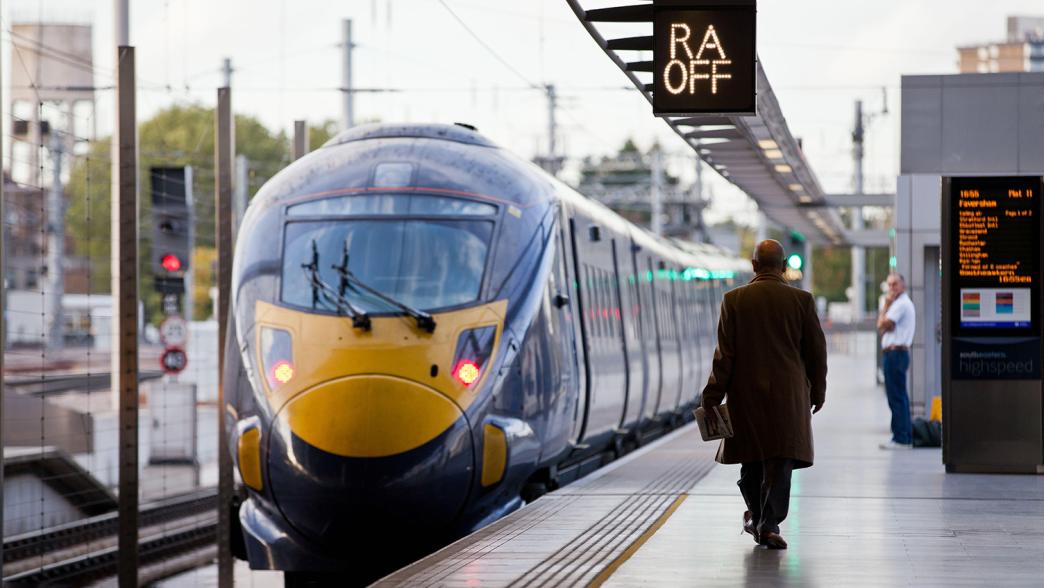The latest HS2 delays expose deeper problems with UK infrastructure planning
HS2's troubled history points to deeper problems with the way the UK plans major infrastructure projects.

Mark Harper is not the first transport secretary to announce delays to HS2, but Emma Norris says the troubled history of the rail project points to deeper problems with the way the UK plans – and makes decisions – on major infrastructure projects
The troubled journey of HS2 shows no sign of easing up. Mark Harper’s announcement that the government would delay building the Birmingham to Crewe leg and the planned link into central London followed the scrapping of the eastern leg of HS2 to Leeds in 2021, only 18 months after Boris Johnson gave the project the green light.
HS2’s history – and the transport secretary’s announcement – is a depressing account of what is wrong with decision-making on large scale infrastructure projects in the UK, with this latest decision almost certainly increasing HS2's costs.
Delays in construction projects do not reduce their costs
It appears that the chancellor’s fiscal rules – particularly the requirement to get debt falling as a share of national income in five years’ time – have driven this decision. 7 Simon Jack, Twitter, 9 March 2023, https://twitter.com/BBCSimonJack/status/1633781080552615936?s=20 But that rule is meant to be a proxy for ensuring the government is on a path to long-term financial sustainability. Delaying investments that are expected to deliver economic benefits and introducing further uncertainty in the government’s perceived willingness to commit to major infrastructure projects – when major projects are already plagued by shifting political headwinds – undermines, rather than supports, the government’s objectives for fiscal sustainability. John Armitt, the chair of the National Infrastructure Commission, is right to say that delays in construction projects often mean the costs are run over a longer period rather than being reduced, and leaked analysis from DfT 8 Elgot J, Internal government briefing admits HS2 delays will increase costs, The Guardian, 14 March 2023, www.theguardian.com/uk-news/2023/mar/14/internal-government-briefing-hs2-delays-increase-costs confirms that the delays will increase costs.
Delaying HS2 undermines the government’s commitment to levelling up
The decision will also likely delay or reduce many of the benefits of the HS2 project. Phase 1 of HS2 (from London to Birmingham) was assessed as ‘low’ value for money; it was only the inclusion of the northern sections of the route that increased the overall value for money. The delays – which also included a pause in planned improvements to the Birmingham to Crewe line – also raise questions about the government’s commitment to ‘levelling up’ more broadly. If investing in major infrastructure projects is an important sign that the UK is focused on growth and tackling regional inequality, this decision seems to signal the opposite.
Other major infrastructure projects have experienced HS2’s problems
The problems the project has encountered over the years tell us a lot about how infrastructure decision-making in this country could be changed for the better. HS2’s estimated cost has risen a staggering amount – from £48bn in 2011 to more than £125bn by 2020. That is no doubt partly down to inefficiencies – these can be addressed by better planning, properly incentivising projects to keep to planned schedules and ensuring relevant departments and public bodies have the skills to oversee project delivery would all help.
But it is also because government is notoriously poor at estimating the costs of major projects at their outset. Crossrail and Thames Tideway, for instance, similarly overran initial estimates by a considerable amount. Government needs to make sure the Treasury has experts in place who can scrutinise cost estimates from departments and tackle the optimism bias that continues to creep in when costing construction projects. Policy makers should also take a more flexible approach to planning. Rather than trying to plan for every detail over a long timescale, ministers and officials should consider starting with a minimum viable option and then adding to it over time to avoid locking themselves into an option that ends up being unexpectedly and unnecessarily expensive.
The government has failed to convince opponents of the benefits of HS2
The benefits of HS2 have been under dispute throughout the project. This is partly because the way government assesses the benefits of projects – cost-benefit analysis – is poorly equipped to capture the value of projects – like HS2 – with long time horizons and benefits that are intrinsically hard to measure. The project has also been subject to a large amount of public and political opposition, with the local and environmental downsides of major projects always needing to be weighed against other benefits. HS2 is not alone in being a major infrastructure project that failed to involve the public from an early stage, and the Institute for Government has previously argued for the creation of a Commission for Public Engagement, modelled on the French Commission Nationale du Débat Public (CNDP) to support better public involvement.
The latest decision in HS2’s long and troubled history will only increase costs and delay benefits that the project will eventually bring, and it calls into question – once again – the government’s commitment to long-term growth-boosting investment. To avoid the overspend and opposition that has marked the HS2 journey, infrastructure decision-making needs a broader rethink.
- Topic
- Public finances
- Political party
- Conservative
- Administration
- Sunak government
- Department
- Department for Transport HM Treasury
- Project
- Infrastructure
- Public figures
- Mark Harper
- Publisher
- Institute for Government